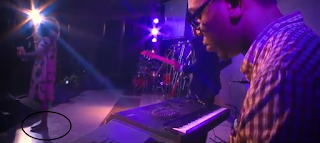This is the Bassline of “There is something that makes me come into your presence my helper“. Watch the well explained video tutorial for it.
Make sure you share the video to your friends. We have more gospel highlife bass guitar tutorial videos available for your pleasure.
“I want to see you” Bass line by Victoria Orenze
“I’m getting ready” Bass line by Tasha cobbs ft Nicki Minaj
Bass Line of “Ancient of Days” by Ron Kenoly
Bass line of 7 popular Gospel Nigerian praise and worship songs
“There is something that makes me come….my helper” Bass line
“Today oo, I will lift up my voice in praise..” Bass line in tonic solfa
Bass Line of “Be Magnified” by Don Moen in tonic solfa
Bass Line of “Arise” by Don Moen in Tonic Solfa
Bass Line/ Chord Progression of “Arugbo Ojo” by “Minister K
Bass Line/ Chord Progression of “Great are you Lord” by sinach
Get our ebook of chord progression of over 150 Nigerian praise and worship songs here








